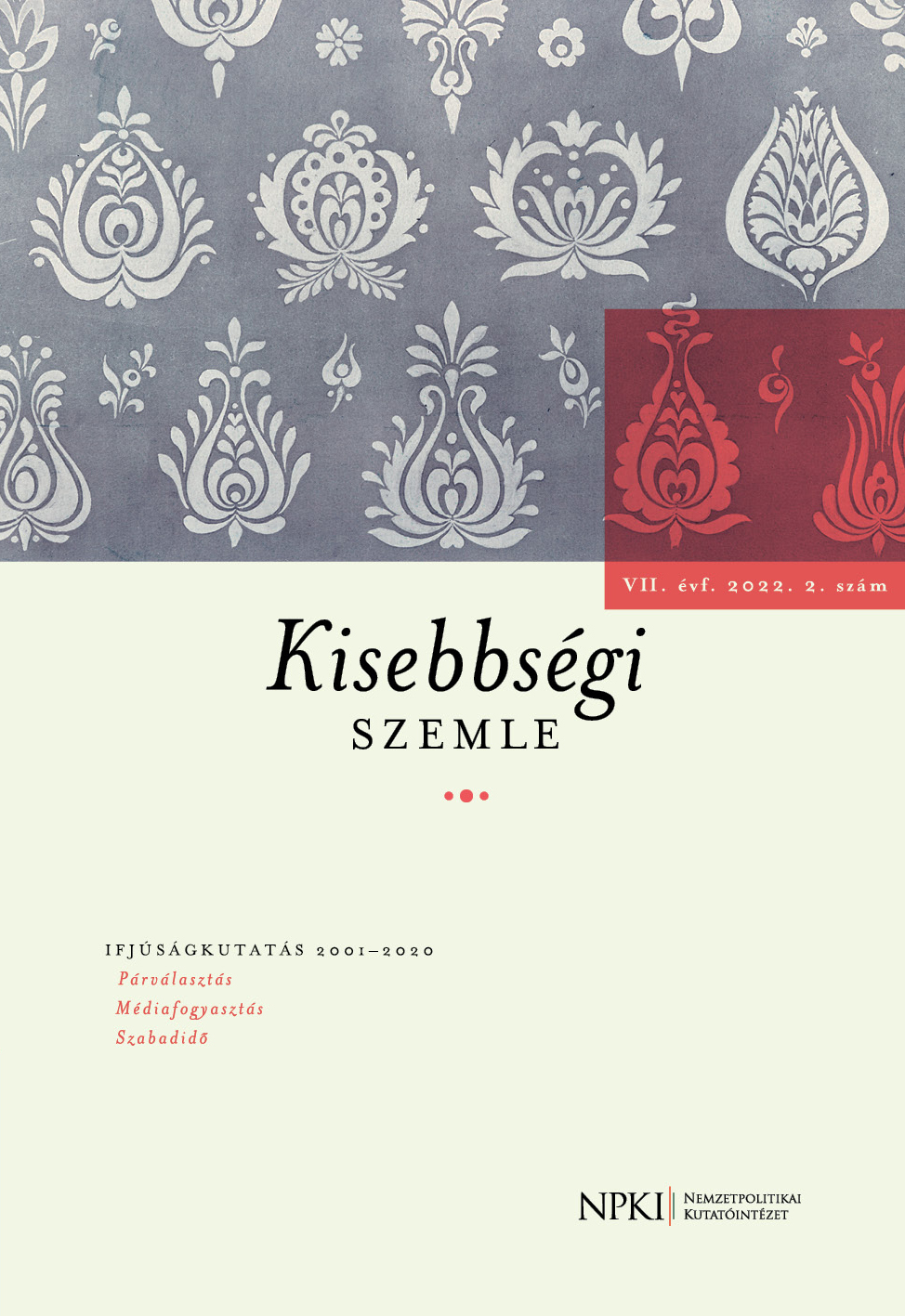A határon túli magyar fiatalok párkapcsolat-formálódásának trendjei az ezredforduló után
Relationship formation trends of ethnic minority Hungarian youth after the millennium
Author(s): Emese Vita, Réka GeambaşuSubject(s): Politics / Political Sciences, Social Sciences, Sociology, Ethnic Minorities Studies
Published by: Nemzetpolitikai Kutatóintézet
Keywords: youth;ethnic minority;relationship
Summary/Abstract: Over the past few decades, significant changes have occurred in the demographic behaviour of youth across all European societies. Young people living in Hungary’s neighbouring countries have experienced the extended transition to adulthood later than their Western European counterparts; however, a significant convergence had taken place in partnership and family formation patterns by 2020. In the present paper, we discuss in detail the connection between cohort, gender, education, and youth partnership formation trends from the beginning of the 2000s to the present, processing data from three representative and comparative large-scale youth surveys (MOZAIK 2001, Hungarian Youth 2016 and 2020), considering ethnic Hungarians between the ages of 15 and 29 living in Romania/Transylvania, southern Slovakia, Ukraine/Subcarpathia and Serbia/ Vojvodina as the basic reference group. The second demographic transition theory, the risk society concept, and transitions to adulthood proved to be a useful theoretic frame in the interpretation of the postponing behaviour exhibited by youth. Among prominent changes, a radical downward trend can be observed in marriage willingness, and at the same time more young people opted for a single lifestyle and cohabitation without marriage, especially in southern Slovakia. Over the past nearly 20 years, family formation practices have been almost entirely neglected from the classical youth life-stage, particularly in the case of younger cohorts (below the age of 25) and in the case of men. It is also pointed out that further educational plans are likely to be less compatible with longterm commitment relationships and youngsters with high school degrees—who might continue learning in the near future—are less likely to live in marriage than their peers with elementary or tertiary-level education.
Journal: Kisebbségi Szemle
- Issue Year: 7/2022
- Issue No: 2
- Page Range: 7-40
- Page Count: 34
- Language: Hungarian

